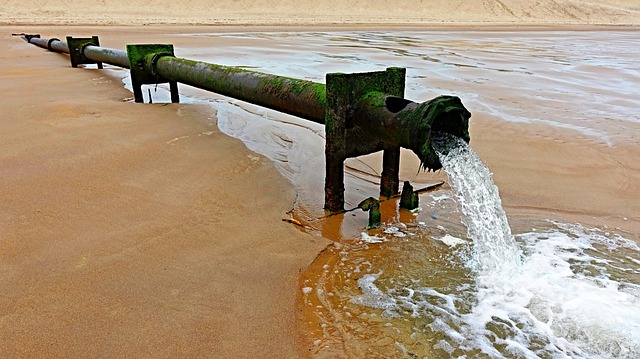Industrial
How Do I Know If I Can File a Camp Lejeune Toxic Water Claim?

During the period between the 1950s and 1980s, the drinking water supply at Camp Lejeune military base was contaminated with several hazardous chemicals. Reportedly, this was a result of improper handling and disposal of chemicals used in the base’s industrial and military operations. Exposure to these toxic compounds has since been linked to various diseases, including several types of cancer, neurological disorders, and reproductive issues, among other serious health problems. If you were stationed at Camp Lejeune during this period, whether on active military duty, a family member, or a civilian employee, you may be eligible to file a compensation claim. This article outlines the eligibility criteria for filing a legal compensation claim, as well as the necessary steps to take.
Must have been Stationed at the Camp During the Affected Period
To be eligible for a claim, alleged victims must have lived or worked on Camp Lejeune for a minimum of 30 days between 1953 and 1987. This includes veterans who were stationed or lived in the base housing, their family members, as well as workers and contractors who were employed there during that time. To recover compensation as a direct descendant in Camp Lejeune lawsuits, you will need to establish that the deceased or incapacitated individual was exposed to contaminated water at the marine base. It’s important to keep track of these documents so you can bring valid evidence to your claim. A legal professional will be able to review these documents to see if you are eligible for compensation.
You Suffered a Health Condition Linked to the Toxic Exposure
The Department of Veterans Affairs has since established a list of medical conditions presumed to be caused by the toxic water at Camp Lejeune, which they’ve listed on their official website. These include various forms of cancer (affecting the lung, bladder, breast, and esophagus). Another medical condition seen among victims is adult leukemia, which affects the blood stream. Other health issues that are listed include scleroderma, infertility & reproductive issues (such as miscarriage and birth defects), among others. These victims need to be compensated for health issues that were only apparent when they were stationed at Camp Lejeune.
You Can Prove a Connection to Your Illness
To successfully file a compensation claim, you will also need to provide evidence demonstrating the link between your illness and the contaminants at the marine base. This includes medical records, military documents, and other evidence that can provide proof of residence or employment on the base during the applicable period. Additionally, medical evidence linking your illness to the exposure, such as a medical diagnosis or statement by a qualified doctor, as well as proof of treatment and expenses related to your illness, will also be helpful. You need to have solid evidence that these health issues were only prevalent from negligent exposure. Once you have those documents sorted out, you can work toward your contaminated water claim.
Filing a Claim for Compensation
Once you have gathered the necessary evidence, you can file a claim for benefits through the Department of Veterans Affairs (VA). You can submit your claim online by visiting the VA’s website and following the instructions provided. You may also file a claim by mail, sending the appropriate VA forms. It is important to note that the claims process can take several months or longer, which is why it’s important to begin the process as soon as possible. You don’t want to miss your opportunity to receive compensation. So, keep track of your details and get those forms signed.
Conclusion
Those who were stationed at Camp Lejeune Marine base during the affected period and have since been diagnosed with an approved medical condition may be eligible to receive compensation. To successfully file a claim, however, you must provide evidence demonstrating your presence at the base during the applicable time, as well as proof linking your illness to toxic exposure. This includes medical records, military documents, and other evidence that can verify the connection. Once you have all those documents together, fill out your claim online and speak with a trusted legal professional. Your lawyer will make sure that you get the justice you deserve.
-
Blog1 year ago
MyCSULB: Login to CSULB Student and Employee Portal – MyCSULB 2023
-
Android App3 years ago
Cqatest App What is It
-
Android1 year ago
What Is content://com.android.browser.home/ All About in 2023? Set Up content com android browser home
-
Software2 years ago
A Guide For Better Cybersecurity & Data Protection For Your Devices
-
Latest News2 years ago
Soap2day Similar Sites And Alternatives To Watch Free Movies
-
Android2 years ago
What is OMACP And How To Remove It? Easy Guide OMACP 2022
-
Android3 years ago
What is org.codeaurora.snapcam?
-
Business2 years ago
Know Your Business (KYB) Process – Critical Component For Partnerships





















